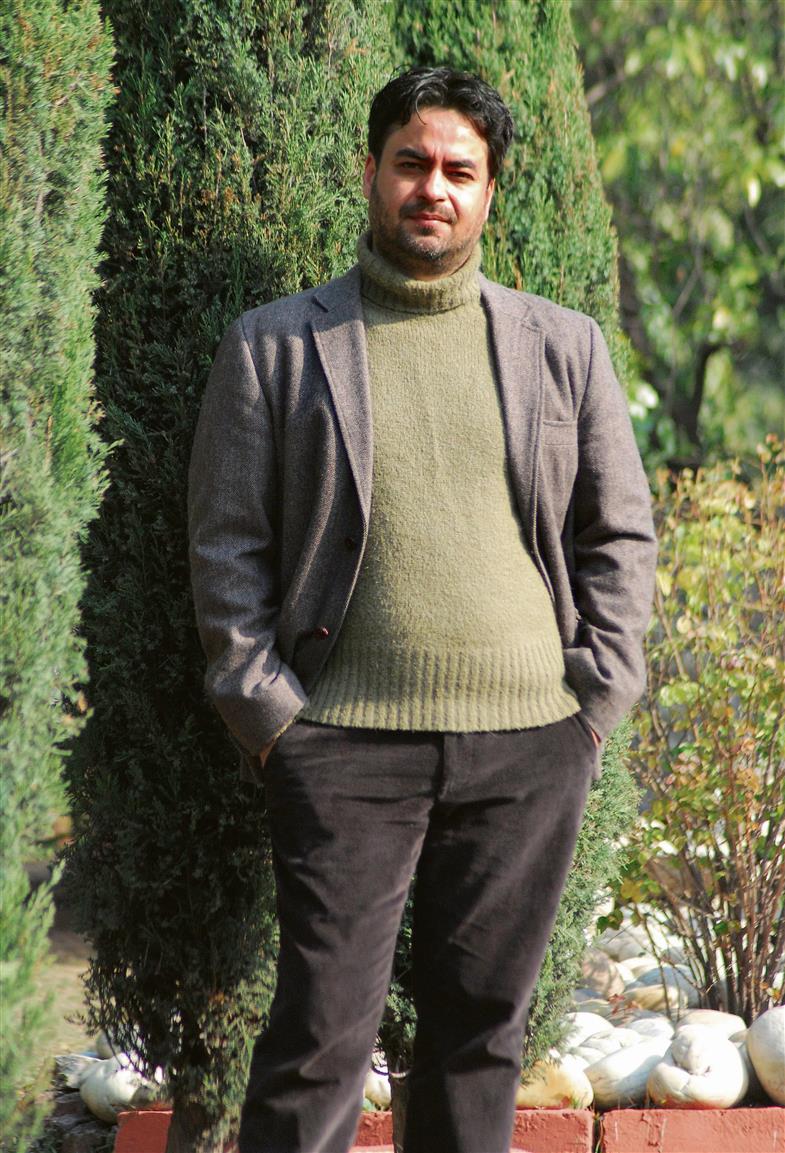
Among the multi-splendoured things that cinema is, it is business too. With this realisation in mind, when the Cinevesture International Film Festival (CIFF) recently decided to put out its first edition, they decided to make it producer-centric.
Nonika Singh
“The movie business is a big gamble.”
— Jackie Chan
Among the multi-splendoured things that cinema is, it is business too. With this realisation in mind, when the Cinevesture International Film Festival (CIFF) recently decided to put out its first edition, they decided to make it producer-centric. Beyond the strong line-up of films and celebrity presence, no less than 20 upcoming projects, mostly films and three web-series too, were included in its market section. As the festival wrapped up in Chandigarh, the obvious query is, if any of the showcased projects got green-lit during the festival? More importantly, does the ride of indie makers remain as testing as ever? Of course, many makers whose projects were part of the market segment are no greenhorns but established names.

Nina Lath Gupta, founder of the festival, wanted to mitigate the risk of first-time investors. She says, “Our reason for choosing big names like Gurvinder Singh, Randeep Jha, Anurag Singh and Alankrita Shrivastava was to underline the market-worthiness of these projects.” One wonders why would a filmmaker like Anurag, who has several commercial hits like ‘Kesari’, ‘Jatt & Juliet’ and ‘Punjab 1984’ under his belt, need a budding market to finance him. Or why would Alankrita, who has, in recent times, collaborated with bigwigs like Zoya Akhtar, need to look outwards, that too far away from Mumbai?

Namrata Joshi, who, along with Nina, curated the market section, believes, “Often, commercial makers want to test out an alternate zone where they have complete autonomy over what they are making.” Bina Paul, artistic director of the CIFF, adds, “Mounting a film, mainstream or independent, is always a struggle.” “Fortunately, at CIFF”, filmmaker Ajitpal Singh informs, “investors were more than ready to back unconventional subjects which are difficult to produce, provided a big name is attached to it.”
Assamese filmmaker Bhaskar Hazarika, who has already made award-winning films in his mother tongue and is now moving into the Hindi turf with ‘#Jack’, a commercial venture, calls such platforms “conversation starters”. For his previous films, he did find finance at the Busan Film Festival’s Asian Development Fund. CIFF is clearly not in the same league as of now, but backed by Nina, who has an experience of building the NFDC Film Bazaar from scratch, knows which way the dice rolls. Indeed, aspiring producers invariably don’t have a clue, a reason why CIFF organised a producers’ workshop.
Jerome Paillard, former head of Cannes film market, opines, “Investors are hungry for information on how the industry works. Most don’t know how to read the script from the producer’s perspective.”
Screenwriter Julian Freidmann cites an example. “When a BBC film fell through, a new producer on board cut the cost by half simply by suggesting that the film be set in the day instead of night.” These and many others are lessons on the economics of filmmaking which festival markets can proffer.

Bangladeshi writer-director Nuhash Humayun, who was here to mentor others, found himself learning a lesson or two on what all rebates the Indian government provides to international makers and how the scale varies for Bangladeshi producers. Discussions that often happen on the sidelines of the festival are more fruitful. ‘Lipstick Under My Burkha’ fame Alankrita was not unduly perturbed whether her project ‘Girls of Orlem’, an adaptation of Lindsay Pereira’s ‘Gods and Ends’, found financiers in this market or not. “At heart, always an indie maker”, she likes the energy and reconnection with the community of indie makers. She feels, “Indie women filmmakers face a double whammy.” At the CIFF market, however, women-oriented subjects as well as women voices found more than adequate space. Lens on Punjab, including a web-series by Gurvinder, was by conscious design.

Filmmakers working in Punjabi often rue how Maharashtra has a film policy in place which ensures a level-playing field for regional makers vis-a-vis Bollywood. But things are no different for indie makers in Marathi, observes engineer-turned-filmmaker Jayant Digambar Somalkar. Even after winning an award at the Toronto International Film Festival, he is struggling for the theatrical release of his much-acclaimed film ‘Sthal’. The space for indie films is shrinking not only in India, but, as Jerome adds, “World over, the situation is the same, France, with a huge culture of festival cinema, very much included. Festival films, of course, do stand a better chance of distribution.” Not only was Nicole Guillemet, former co-director of the Sundance Film Festival, impressed by the diversity of projects in the CIFF market, ranging from police procedurals to horror to social commentaries, she feels that many had an international appeal and feel.
With films like Reema Maya’s ‘Nocturnal Burger’ creating a buzz at the Sundance Film Festival, the world is fast becoming an oyster for indie filmmakers from India. The caveat, however, is that they ought to think festival strategies through and thoroughly. At the end of the day, as movie mogul Karan Johar warns, cinema is not a mathematical equation and there is no cost-to-profit ratio. “Unless makers are powered by a passion for this art of storytelling, they better stay away.” But, the man with the Midas touch also advises, “If this is what you want to do, just get in at whichever level you can.” The same advice applies to aspiring investors. The CIFF, anyway, is ready to provide a platform not only to those with deep pockets, but also small investors from the region.
On the face of it, the business of cinema may sound like yet another number game but as Andy Warhol said, “Good business is the best art.”
Join Whatsapp Channel of The Tribune for latest updates.


























